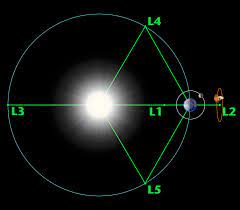Aditya-L1 Mission - India’s First Solar Mission
2023 JAN 30
Preliminary >
Science and Technology > Space technology > ISRO Missions

Why in news?
- Recently, the Visible Line Emission Coronagraph (VLEC), the primary payload on board Aditya-L1, was handed over to Indian Space Research Organisation (ISRO) by the Indian Institute of Astrophysics (IIA).
About Aditya-L1 Mission:
- Aditya-L1 mission, is Indian’s first space mission to observe the Sun
- ISRO is planning to launch the Aditya-L1 mission by June or July 2023 to observe the Sun and the solar corona.
- Launch Vehicle:
- Polar Satellite Launch Vehicle (PSLV) with 7 payloads (instruments) on board.
- The 7 payloads include:
- VELC
- Solar Ultraviolet Imaging Telescope (SUIT)
- Solar Low Energy X-ray Spectrometer (SoLEXS)
- Aditya Solar wind Particle Experiment (ASPEX)
- High Energy L1 Orbiting X-ray Spectrometer (HEL1OS)
- Plasma Analyser Package for Aditya (PAPA)
- Advanced Tri-axial High Resolution Digital Magnetometers
Objectives of the mission:
- Aditya L1 will study the coronal heating, solar wind acceleration, coronal magnetometry, origin and monitoring of near-UV solar radiation and continuously observe photosphere, chromosphere and corona, solar energetic particles and magnetic field of the Sun.
- The mission will be launched by ISRO to the L1 orbit which is about 1.5 million km from the Earth. The orbit allows Aditya-L1 to look at the Sun continuously.
- L1 refers to Lagrangian/Lagrange Point 1, one of 5 points in the orbital plane of the Earth-Sun system.
- Lagrange Points are positions in space where the gravitational forces of a two-body system like the Sun and Earth produce enhanced regions of attraction and repulsion
Features of VELC Payload:
- VELC will be the main payload among seven designed to study various aspects of the sun and is one of the most precise instruments made in India.
- It was conceptualised and designed in 15 years which will help in solving mysteries related to solar astrophysics.
PRACTICE QUESTION:
Aditya L1, India’s first solar mission, aims to study:
1. Magnetic field of the Sun
2. Coronal heating
3. Solar wind acceleration
Select the correct answer using the code given below:
(a) 1 and 2 only
(b) 2 only
(c) 2 and 3 only
(d) 1,2 and 3
Answer
